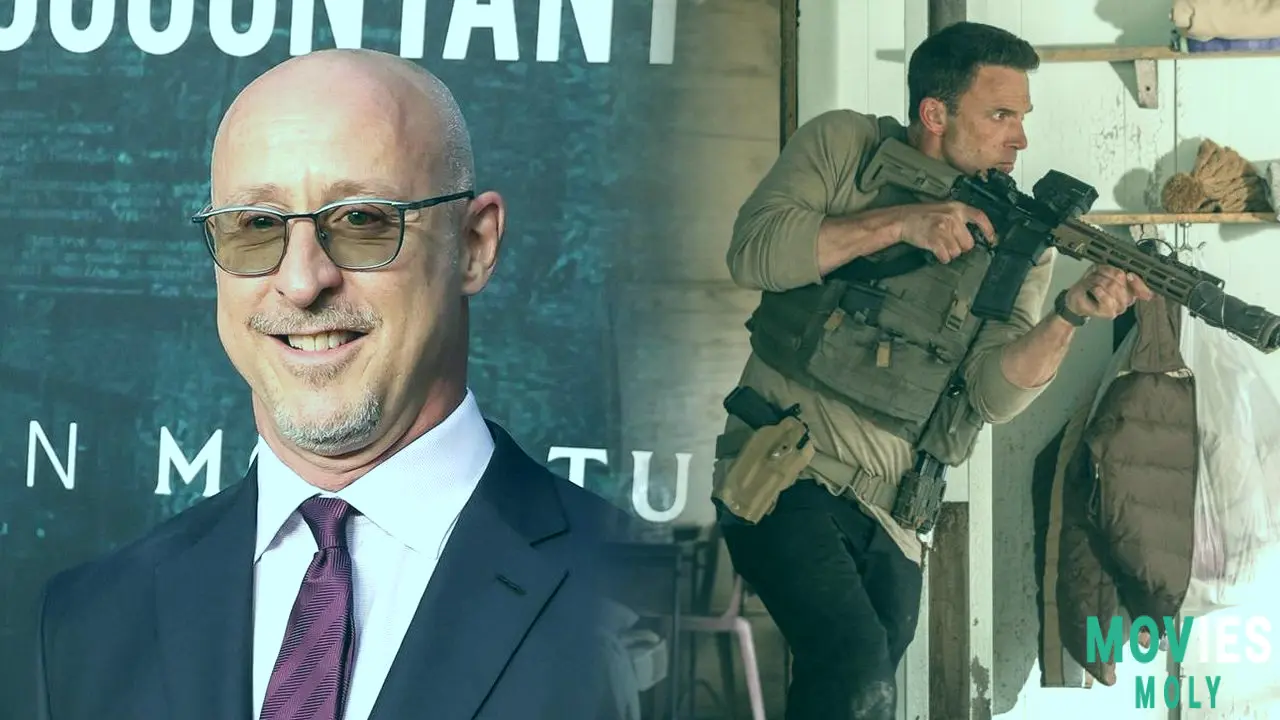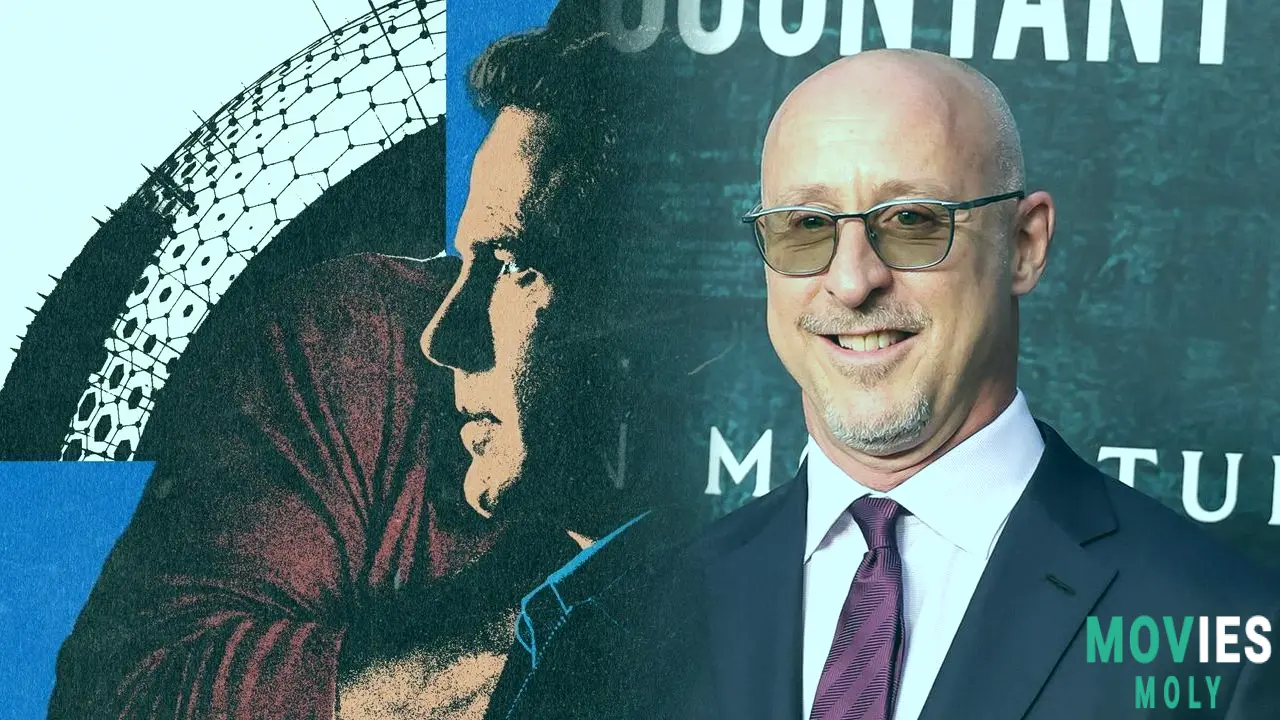By channeling the spirit of a math-whiz Batman through a lens of tonal whiplash, The Accountant 2 squeezes one more trilogy setup out of Christian Wolff’s (Ben Affleck) ledger of emotional deficits, sharp shooting, and sterile rom-com fails.
It's not every day that a sequel to a mid-budget action-thriller doubles down on thematic contrasts like human trafficking and corgi adoption fantasies. Yet, The Accountant 2 — the long-awaited follow-up to Gavin O’Connor’s 2016 sleeper hit — manages to walk that uneven tightrope with varying degrees of success. For better or worse, it still gives us Christian Wolff, the neurodivergent numbers savant turned freelance auditor-assassin, wrestling not only with bad guys, but with the baffling concept of dating in the modern world.
From Forensic Math to Full-Throttle Mayhem: The Shift in Christian Wolff’s WorldIf you’re hoping for more ledger-crunching, white-collar unraveling like in the original, you’re in for a ride—just not the kind Wolff would meticulously plan. The accounting in The Accountant 2 is sparse, overshadowed by a plot that barrels into human trafficking, brotherly dysfunction, and high-tech surveillance kid hackers who seem plucked from the X-Men canon but lack any of the dialogue or personality that makes mutants memorable.
Christian spends less time uncovering financial fraud and more time dislocating shoulders with a deadpan precision that echoes his mathematical genius. One scene has him dismantling a pizza joint owner’s embezzlement with the same cold efficiency he uses to break bones. It’s a thematic pivot from the first film, where his violence was almost poetic in its precision—now it’s more about volume than virtuosity.
Brotherly Bonds and Misfired Comedy: Jon Bernthal’s Braxton Steals (and Stumbles) Into the Spotlight

Jon Bernthal’s return as Braxton Wolff was one of the most anticipated comebacks from the original. But the evolution of his character from stoic protector to emotionally overcharged sidekick is a double-edged sword. Braxton’s comic timing is undeniable, and when he’s offereing sharp quips during kill missions, you can almost see the *48 Hours* style buddy comedy that O’Connor dreams of.
Unfortunately, the script gives Braxton too many cringe-worthy beats to chew on—like his inexplicable obsession with adopting a corgi. These moments clash with the film’s darker undercurrents and often leave the tone wobbling between grim thriller and oddball comedy. Still, every scene with the Wolff brothers shooting the breeze (and the bad guys) hints at a creative chemistry that might be better explored in the planned third installment.
Human Trafficking and Tonal Tightropes: When Popcorn Action Meets Real-World Tragedy
Director Gavin O’Connor took a bold, if uneasy, step by centering the plot around a Salvadoran family caught in the crosshairs of a child trafficking ring. The subplot’s real-world resonance—and its uncomfortable timing—cannot be overstated. O’Connor began developing this script in 2018, long before the tragic realities of migrant families made this subject matter unavoidably topical.
That said, the film struggles to give these victims voice or agency, instead using them as silent pawns in Wolff’s moral calculus. The Latino characters rarely speak beyond basic lines of Spanish, and the villains are as one-dimensional as their garish attire. It's a well-intentioned spotlight that's dimmed by its execution, but the fact that the film even tries to engage with such a heavy issue in a genre popcorn context is... something.
Love, Lasers, and Logarithms: The Surreal Romance of Christian Wolff
Perhaps the most oddly endearing through-line in The Accountant 2 is Christian’s awkward, almost cringe-worthy quest for love. From a speed-dating disaster montage to a forlorn honky-tonk dance, these sequences are tonally divorced from the gore and gravitas of the trafficking subplot—but they work. They humanize a character who often seems more like a math-driven Terminator than a man grappling with emotional literacy.
And then there’s the lightsaber. In a moment of pure, unsanctioned creative impulse, O’Connor stuck a Star Wars toy in Affleck’s hands just to liven up a scene. The studio didn’t even ask Disney for permission. It’s the kind of nerdy, rebellious move that feels perfectly in line with a character who once professed love through a pocket protector. Gandalf may have said, “One does not simply…” but one apparently *does* simply put a lightsaber in an Accountant movie.
Looking Ahead to the Trilogy’s Finale: A Wish for More ‘Rain Man on Steroids’ and Less Tonal Whiplash
O’Connor envisions this as a trilogy, and he promises the next one will lean into the dynamic between Christian and Braxton in the form of a buddy comedy described as “Rain Man on steroids.” If that sounds like an exaggeration, consider it a hopeful pivot away from the tonal chaos of the second film and toward something more focused—and fun.
Christian Wolff still doesn’t wear his emotions on his sleeve, but he’s clearly searching for connection. Whether that comes in the form of romance, brotherhood, or a trilogy that fully embraces its own absurdity, one thing’s certain: this is a superhero origin story of sorts. Not the cape-and-mask type, but the kind that champions neurodivergence, intellect, and the messy human desire to be understood.
For all its missteps, The Accountant 2 remains watchable by virtue of its protagonist—a man who turns math into justice, isolation into mission, and still somehow manages to ask for a second chance at love. That’s not just action cinema. That’s Affleckian heroism in its most unglamorous, but genuine, form.





